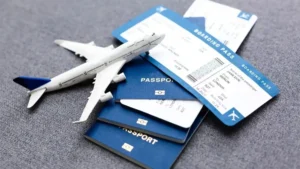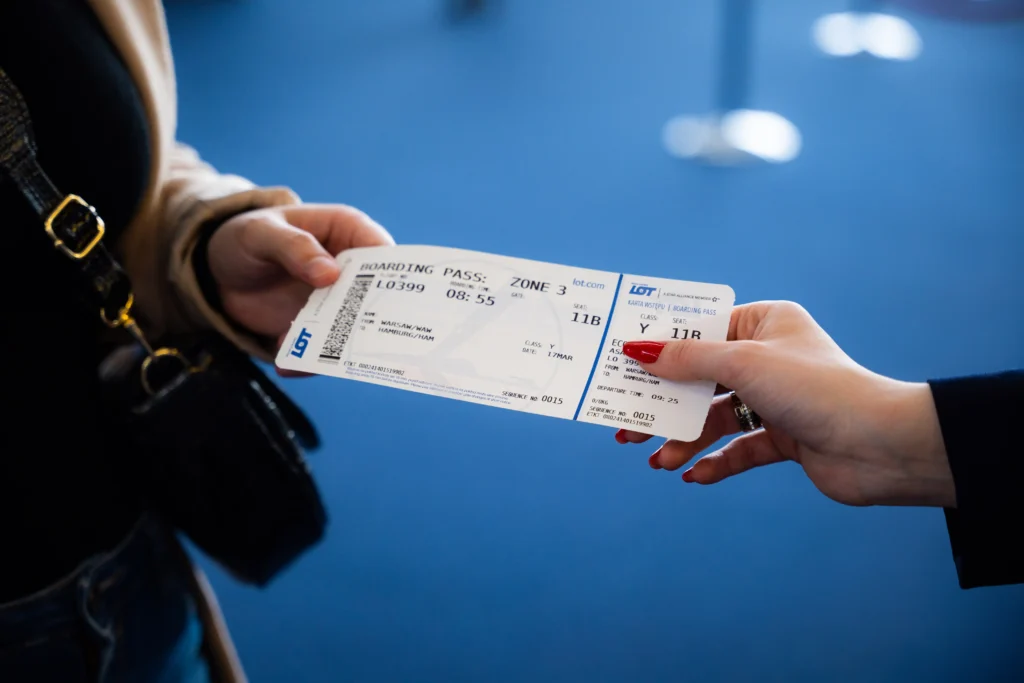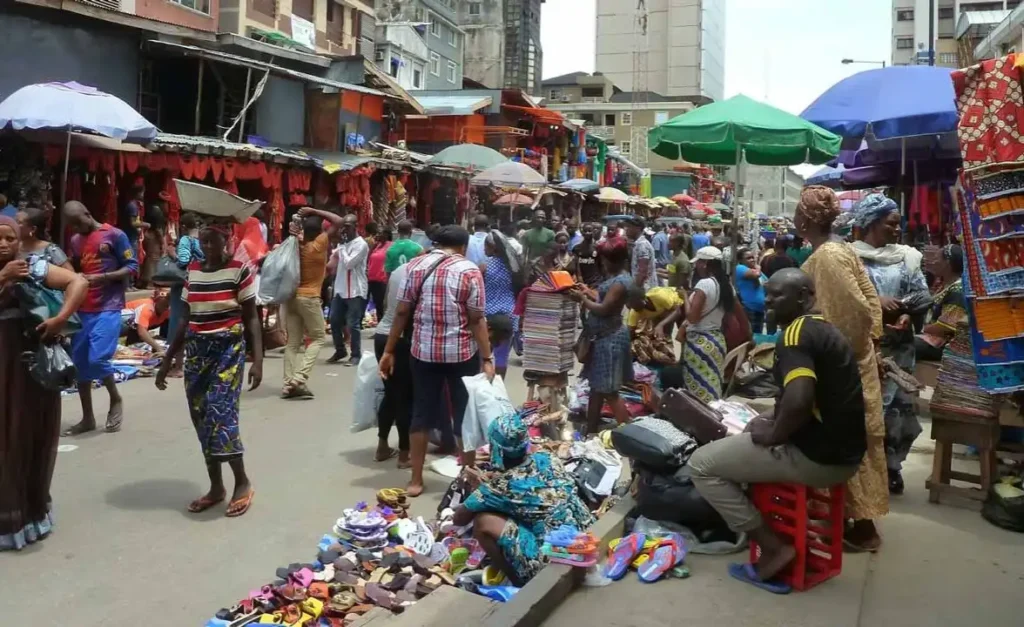Nigeria’s aviation industry experienced a severe blow in the final quarter of 2023, as air ticket sales nosedived by 40% compared to previous periods. The steep drop, which affected both domestic and international routes, was primarily attributed to surging ticket prices, ongoing foreign exchange (FX) restrictions, and broader economic challenges that eroded the purchasing power of travelers.
According to industry insiders and data from major ticketing platforms, the last three months of 2023 marked one of the most difficult quarters for airlines operating in the country, both foreign and local. A combination of high operating costs, rising inflation, and regulatory barriers surrounding foreign exchange availability created a perfect storm that made air travel unaffordable for many Nigerians.
A Sharp Decline in Passenger Traffic
Air ticket sales across major travel agencies and airlines declined by an estimated 40% in Q4 2023, a trend that reflects the economic strain on both leisure and business travelers. The downturn was evident in reduced passenger volumes at major airports like Lagos’ Murtala Muhammed International Airport and Abuja’s Nnamdi Azikiwe International Airport.
“People simply stopped flying unless it was absolutely necessary,” said a Lagos-based travel consultant. “We saw many clients postpone or cancel their trips—some opted for virtual meetings instead of business travel, while others deferred vacations entirely.”
The trend was particularly pronounced on international routes, where ticket prices skyrocketed beyond the reach of average Nigerians. Travelers were forced to pay exorbitant amounts for flights to destinations such as the United Kingdom, United States, United Arab Emirates, and even nearby African countries.
For example, round-trip economy tickets to London or Dubai that typically cost around ₦700,000 pre-pandemic rose to as high as ₦2.5 million by late 2023. This sharp increase not only discouraged discretionary travel but also impacted essential trips, including medical tourism and student mobility.

Foreign Exchange Restrictions Fuel Crisis
At the heart of the airfare inflation lies Nigeria’s persistent foreign exchange scarcity. Throughout 2023, airlines struggled to repatriate their ticket sale revenues due to Central Bank of Nigeria (CBN) policies that restricted access to U.S. dollars and other major foreign currencies. This created a backlog of funds trapped in the country, prompting some international carriers to reduce seat availability or hike fares to hedge against losses.
With the naira experiencing rapid depreciation and limited forex liquidity, foreign airlines were forced to sell tickets in Nigeria at parallel market rates, significantly above the official exchange rate. In turn, passengers bore the brunt through much higher fares.
“In some cases, passengers were paying nearly double the cost for the same ticket they would have purchased six months earlier,” said a spokesperson for the National Association of Nigeria Travel Agencies (NANTA). “The FX backlog made it difficult for airlines to operate profitably, so they either adjusted prices upwards or reduced frequencies altogether.”
The CBN eventually began clearing portions of the airline backlog in late 2023, releasing over $60 million to foreign carriers. However, the relief came too late to reverse the slump in travel demand during the fourth quarter.
Rising Operational Costs and Inflation
Aside from forex constraints, Nigeria’s high inflation rate and fuel costs also contributed to the aviation industry’s struggles. The removal of fuel subsidies and the depreciation of the naira led to a general increase in the cost of goods and services, including jet fuel, which is largely imported.
Local airlines operating in naira found it increasingly difficult to maintain competitive prices, especially as aircraft maintenance, insurance, and spare parts are all dollar-denominated. Many carriers were forced to pass on these costs to passengers, further exacerbating the affordability crisis.
“Nigerians are dealing with economic pressures across all sectors—from food and housing to transportation,” said an economist from the Lagos Business School. “Travel, especially by air, has become a luxury that fewer people can afford.”
The ripple effect extended to the travel and tourism ecosystem. Hotels, tour operators, airport vendors, and car rental services all reported decreased activity during the traditionally busy end-of-year holiday period, which usually sees a spike in travel due to family visits and festivities.
Domestic Airlines Also Struggled
While international routes were hit hardest, domestic carriers also suffered significant setbacks. Many Nigerians avoided air travel between cities such as Lagos, Abuja, Port Harcourt, Kano, and Enugu due to ticket prices that climbed to ₦150,000 and above for one-way journeys—almost triple what was paid just a year earlier.
Travelers who previously preferred air transport for convenience and safety began exploring alternative modes of travel, including road transport and virtual communication. The bus transport sector experienced a slight uptick in patronage, even though road safety and poor infrastructure remained major concerns.
Several domestic airlines were forced to cut routes, reduce flight frequencies, or temporarily ground aircraft due to cost pressures and reduced demand. Some smaller carriers even exited the market altogether, citing an unsustainable operating environment.
Travel Agencies and Agents Bear the Brunt
Nigeria’s travel agents, who serve as the main intermediaries between airlines and passengers, were among the hardest hit by the slump in ticket sales. Agencies reported massive revenue declines, with some laying off staff or shutting down altogether.
NANTA, the umbrella body for travel agencies, lamented that its members had witnessed one of the toughest years in recent memory. The association called for urgent reforms to address forex challenges, stabilize the naira, and support the broader travel sector.
“Without a stable forex regime and industry-friendly policies, we risk a total collapse of the travel sector,” said Susan Akporiaye, NANTA President. “Our agents are barely surviving, and our clients can no longer afford to fly.”
Government Intervention Needed
Stakeholders in the aviation industry have urged the Nigerian government to take concrete steps to stabilize the sector. Key recommendations include:
-
Clearing the remaining FX backlog owed to international airlines
-
Providing access to affordable foreign exchange at official rates
-
Reducing levies and taxes on aviation fuel and imported parts
-
Strengthening regulatory support for both foreign and domestic airlines
-
Investing in airport infrastructure to attract more carriers and passengers
There is also growing consensus that Nigeria must review its bilateral air service agreements (BASAs) to ensure mutual benefits and protect domestic airlines from unfair competition.
Outlook for 2024
Despite the gloomy Q4 figures, aviation experts remain cautiously optimistic about a gradual recovery in 2024, provided that forex conditions improve and inflation moderates. The recent return of Emirates Airlines to Lagos and the launch of new international routes by other carriers are seen as positive signs of renewed confidence in Nigeria’s market potential.
Moreover, as the government continues to prioritize tourism, diaspora engagement, and infrastructure development, the demand for air travel could rebound—if supported by the right policies and price stability.
Conclusion: A Wake-Up Call for Nigeria’s Aviation Industry
The sharp 40% drop in air ticket sales during Q4 2023 has served as a sobering reminder of how fragile Nigeria’s aviation ecosystem truly is. Without urgent reforms and targeted interventions, millions of Nigerians will remain priced out of the skies, while the country risks losing its status as a regional aviation hub.
By addressing forex bottlenecks, reducing operational barriers, and fostering fair competition, Nigeria can chart a more sustainable course for its aviation future—ensuring that air travel becomes a viable option once again for both citizens and visitors alike.






